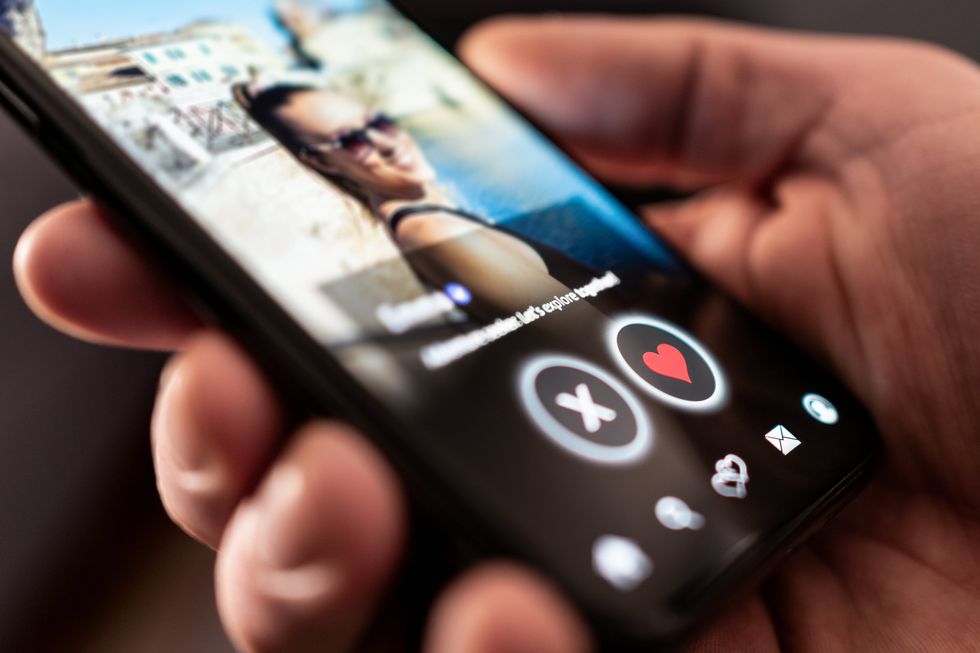Catfishing once felt like a creepy early-to-mid-2010s trend that would eventually die out – especially with technological advances and security measures that promise extra protection online.
However, said advances seemingly had a reverse effect, with the likes of artificial intelligence making it easier to mimic someone you might have not even met. Catfishing is not yet considered a crime, despite continuous efforts to make it a criminal offence.
The term was popularised off the back of the 2012 MTV reality television series Catfish, an investigative show dedicated to exposing fake profiles online. More recently, the Netflix show Sweet Bobby became an instant hit for unravelling Kirat Assi's extraordinary experience that spanned more than 10 years.
In fact, catfishing and romance scams have cost people $1.45 billion, according to the Federal Trade Commission, with approximately 83 per cent of incidents occurring on Facebook.
Even the likes of Drew Barrymore have gone through the pits of dating, having been catfished herself.
During an episode of her popular series The Drew Barrymore Show, the actress told viewers about the time she was tricked online.
"This guy on my dating app said he was the quarterback for the Los Angeles Rams," she told co-host Ross Mathews. "So, I wrote to him and I was like, 'Oh my God, I went to the first practice game.'"
It turned out, he wasn't who he said he was after all.
"The guy was like, 'Hey, Drewski,' and I was like, 'I hate you … You pithy, deceiving, playful — you’ve made me feel stupid,'" she said.
“'I don’t know who you are. I feel so dumb. Why did we have to get off on this foot? I hate you!'"
Indy100 spoke to Emma Hathorn, a relationship and dating expert at Seeking, who called catfishing a prevalent issue when online dating that seems to be getting worse at the hands of AI.
Emma notes how big an issue it has become, and Co-CEO Dana Rosewall is taking proactive measures to create an "entirely fraud-free" platform to put safety first.
She believes people engage in catfishing to satisfy their emotional or psychological needs such as seeking validation, or to exploit victims financially.
"By creating a fake profile, they can present a curated version of themselves or even an entirely false identity, hoping to gain attention, sympathy, or control over others in ways they may not be able to in real life," Emma explains to Indy100. "While motivations vary, the emotional impact on the person being deceived is often profound, affecting their ability to trust others."
To minimise the risk of being catfished online, Emma offered five red flags to look out for.
Unrealistic photos
Authentic profiles feature a variety of casual, candid photos from real-life moments. If a profile only includes professional images or selfies, it could be a red flag. Look out for the same photos appearing across different accounts or in other online sources - reverse image searches can help spot this.
Profiles that lack natural, everyday context may not be genuine. Overly filtered selfies, repetitive images, and anything that looks a little too good to be true might be a red flag here.

Avoids video chats or in-person meetings
One of the clearest signs is resistance to video calls or in-person meetings. Someone with a genuine profile will generally be open to connecting face-to-face, while a catfish will make excuses to avoid these situations where their identity could be exposed.

Inconsistent or vague details
Inconsistencies in a person’s backstory, like conflicting information about their job or location can be a red flag. People with fake profiles often struggle to maintain a consistent story and may evade specific questions or give vague answers.
This is where a site’s ID Verification will be useful; ensure that you choose a platform that offers this function.

Rapidly escalates the relationship
Be wary of anyone pushing for a quick emotional connection. Rushing intimacy is a common manipulation tactic for catfishers looking to gain trust quickly.

Requests for money or personal information
A request for financial help or personal information early on is a major warning sign. Authentic users don’t typically ask for money from someone they’ve only met online, so avoid sharing anything sensitive until trust is well-established.

As for what to do if you suspect someone could be a catfish, Emma urges people to stop personal exchanges immediately.
"Gather any evidence of suspicious behaviour, such as screenshots or unusual conversations, and report the profile to the platform," she advises, adding that dating platforms (including Seeking) have systems in place to investigate such reports and remove fraudulent accounts.
"Blocking the individual can also help prevent further contact. Above all, trust your instincts and prioritise your safety," she concludes.
How to join the indy100's free WhatsApp channel
Sign up for our free Indy100 weekly newsletter
Have your say in our news democracy. Click the upvote icon at the top of the page to help raise this article through the indy100 rankings.














